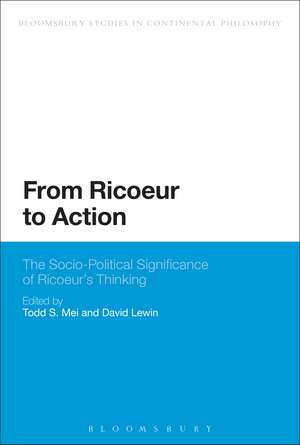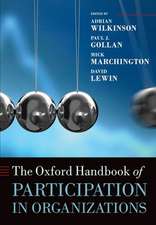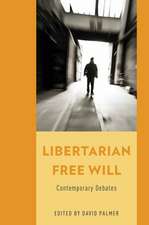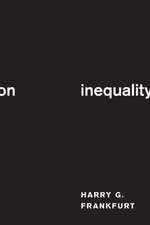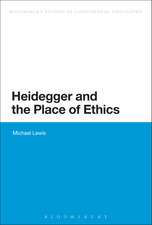From Ricoeur to Action: The Socio-Political Significance of Ricoeur's Thinking: Bloomsbury Studies in Continental Philosophy
Editat de Dr Todd S. Mei, Dr David Lewinen Limba Engleză Paperback – 20 noi 2013
| Toate formatele și edițiile | Preț | Express |
|---|---|---|
| Paperback (1) | 258.15 lei 6-8 săpt. | |
| Bloomsbury Publishing – 20 noi 2013 | 258.15 lei 6-8 săpt. | |
| Hardback (1) | 891.51 lei 6-8 săpt. | |
| Bloomsbury Publishing – 14 mar 2012 | 891.51 lei 6-8 săpt. |
Din seria Bloomsbury Studies in Continental Philosophy
- 14%
 Preț: 179.26 lei
Preț: 179.26 lei - 23%
 Preț: 179.10 lei
Preț: 179.10 lei - 13%
 Preț: 238.22 lei
Preț: 238.22 lei - 31%
 Preț: 772.98 lei
Preț: 772.98 lei - 30%
 Preț: 773.39 lei
Preț: 773.39 lei - 14%
 Preț: 888.65 lei
Preț: 888.65 lei - 22%
 Preț: 772.98 lei
Preț: 772.98 lei - 13%
 Preț: 258.33 lei
Preț: 258.33 lei - 23%
 Preț: 256.02 lei
Preț: 256.02 lei - 30%
 Preț: 715.00 lei
Preț: 715.00 lei -
 Preț: 255.66 lei
Preț: 255.66 lei - 22%
 Preț: 773.06 lei
Preț: 773.06 lei - 14%
 Preț: 891.10 lei
Preț: 891.10 lei - 30%
 Preț: 774.20 lei
Preț: 774.20 lei - 13%
 Preț: 257.97 lei
Preț: 257.97 lei - 30%
 Preț: 715.00 lei
Preț: 715.00 lei - 22%
 Preț: 774.62 lei
Preț: 774.62 lei - 13%
 Preț: 256.20 lei
Preț: 256.20 lei -
 Preț: 256.59 lei
Preț: 256.59 lei - 22%
 Preț: 257.50 lei
Preț: 257.50 lei - 13%
 Preț: 257.03 lei
Preț: 257.03 lei - 13%
 Preț: 257.68 lei
Preț: 257.68 lei - 13%
 Preț: 258.15 lei
Preț: 258.15 lei - 30%
 Preț: 715.19 lei
Preț: 715.19 lei - 13%
 Preț: 256.49 lei
Preț: 256.49 lei - 22%
 Preț: 891.10 lei
Preț: 891.10 lei -
 Preț: 255.94 lei
Preț: 255.94 lei - 13%
 Preț: 236.45 lei
Preț: 236.45 lei - 30%
 Preț: 714.92 lei
Preț: 714.92 lei - 30%
 Preț: 773.81 lei
Preț: 773.81 lei - 22%
 Preț: 772.98 lei
Preț: 772.98 lei - 22%
 Preț: 889.08 lei
Preț: 889.08 lei - 30%
 Preț: 714.61 lei
Preț: 714.61 lei -
 Preț: 256.59 lei
Preț: 256.59 lei - 14%
 Preț: 772.98 lei
Preț: 772.98 lei - 22%
 Preț: 257.68 lei
Preț: 257.68 lei - 22%
 Preț: 891.75 lei
Preț: 891.75 lei - 30%
 Preț: 773.81 lei
Preț: 773.81 lei
Preț: 258.15 lei
Nou
Puncte Express: 387
Preț estimativ în valută:
49.40€ • 51.57$ • 40.88£
49.40€ • 51.57$ • 40.88£
Carte tipărită la comandă
Livrare economică 05-19 aprilie
Preluare comenzi: 021 569.72.76
Specificații
ISBN-13: 9781472533876
ISBN-10: 1472533879
Pagini: 288
Dimensiuni: 156 x 234 x 15 mm
Greutate: 0.4 kg
Editura: Bloomsbury Publishing
Colecția Bloomsbury Academic
Seria Bloomsbury Studies in Continental Philosophy
Locul publicării:London, United Kingdom
ISBN-10: 1472533879
Pagini: 288
Dimensiuni: 156 x 234 x 15 mm
Greutate: 0.4 kg
Editura: Bloomsbury Publishing
Colecția Bloomsbury Academic
Seria Bloomsbury Studies in Continental Philosophy
Locul publicării:London, United Kingdom
Caracteristici
Represents a new generation of Ricoeur scholarship, moving beyond traditional exegetical engagements
Notă biografică
Todd S. Mei is Lecturer of Philosophy at the University of Kent, UK.David Lewin is Senior Lecturer in Philosophy of Education at Liverpool Hope University, UK, where he is co-director of Education Studies and director of the Philosophy of Education Special Interest Group.
Cuprins
1. Introduction \ Part I: Capability I \ 2. From Ricoeur to Life: 'Living up to Death' with Spinoza, but also with Deleuze Pamela Sue Anderson \ 3. From Metaphor to Life-Word: Ricoeur's Metaphoric Subjectivity Fiona Tomkinson \ 4. Ricoeur and the Capability of Modern Technology David Lewin \ Part II: Capability II \ 5. The Course of Racial Recognition L. Sebastian Purcell \ 6. Paul Ricoeur and Bell Hooks on the Development of Social Esteem Scott Davidson \ Part III: Utopia \ 7. To Think Utopia With and Beyond Paul Ricoeur Vicky Iakovou \ 8. Ricoeur versus Ricoeur? Between the Universal and the Contextual George H. Taylor \ 9. Turn around and Step Forward: Environmentalism, Activism and the Social Imaginary Brian Treanor \ 10. States of Peace: Ricoeur on Recognition and the Gift Christopher Lauer \ Interlude \ 11. Ricoeur's Atemwende: A Reading of 'Interlude: Tragic Action' in Oneself as Another David Fisher \ Part IV: The Theological \ 12. The Unsurpassable Dissensus: The Ethics of Forgiveness in Paul Ricoeur's Work Olivier Abel \ 13. Examining Canonical Representations: The 'Exceptionalism' of Ricoeur's Hermeneutics and the Bid for an Ethical Canon Colby Dickinson \ Bibliography \ Index
Recenzii
This volume is a pioneering engagement with Ricoeur's philosophy of political action. Taking its cue from Ricoeur's notion of politics as a "considered wager" on productive social tension, its contributors offer a rich panoply of perspectives on crucial contemporary issues, ranging from race and environment to democracy and forgiveness. Here is a treasure trove of insights into the multidimensional dialectic of socio-political life and a precious guide to the cultivation of Ricoeur's dream of the "wide citizen".
From Ricoeur to Action aptly explores the central concerns of Ricoeur's philosophy. This is an exciting contribution to Ricoeur scholarship and new ventures of thought as well. I heartily recommended it for a wide readership.
'This book offers thorough and brilliant analyses of Paul Ricoeur's intellectual legacy in its relevance for current debates in political theory and ethics. It is a key collection that provides a wealth of fresh perspectives built on many convincing reconstructions of the main intentions, trajectories, and new departures of his multi-faceted hermeneutics of the self in its cultural mediations. Scholars of politics, ethics, law, social theory, philosophy and theology will find the tools of philosophy at work in clarifying the shared space and the limits of human agency, and in identifying the tasks of translating convictions and renewing symbolic resources in view of the challenges posed for democratic self-understandings in a technological age.'
From Ricoeur to Action aptly explores the central concerns of Ricoeur's philosophy. This is an exciting contribution to Ricoeur scholarship and new ventures of thought as well. I heartily recommended it for a wide readership.
'This book offers thorough and brilliant analyses of Paul Ricoeur's intellectual legacy in its relevance for current debates in political theory and ethics. It is a key collection that provides a wealth of fresh perspectives built on many convincing reconstructions of the main intentions, trajectories, and new departures of his multi-faceted hermeneutics of the self in its cultural mediations. Scholars of politics, ethics, law, social theory, philosophy and theology will find the tools of philosophy at work in clarifying the shared space and the limits of human agency, and in identifying the tasks of translating convictions and renewing symbolic resources in view of the challenges posed for democratic self-understandings in a technological age.'
